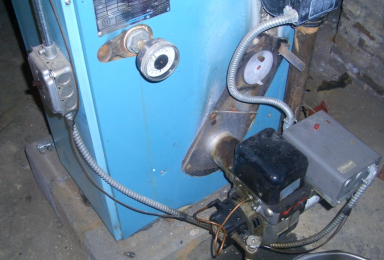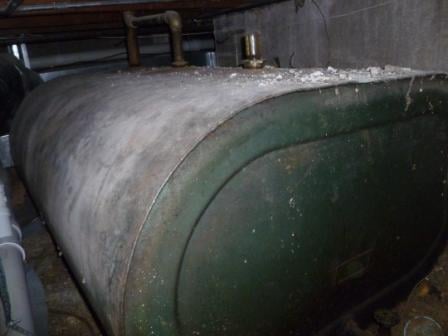Wake up your heating oil system with a hot cup of furnace oil additive
It's that time again. Homeowners up in the soon-to-be-frosty North know what's coming. Old Man Winter is showing signs of crashing fall's party - and...

Bell Performance has been based in Florida ever since company founder Robert Bell moved down from Norfolk, Virginia in the 1930s. There’s not a lot of home heating oil used down here. Those of you up north are well-versed with heating oil, its issues, and the yearly routines involved in buying it, storing it and using it.
In the recent past, many heating oil suppliers offered deals to their customers of discounted pricing if they would pre-pay for future heating oil supplies. This tended to be beneficial for both sides (which is a good thing). Heating oil customers got discounted pricing, sometimes saving 5-15 cents a gallon at minimum (and as much as $2.00 a gallon during the crazy oil price spikes of the late 2000s). The heating oil suppliers got money up front and reduced their risk exposure from customers not paying for deliveries.
These deals probably aren’t as easy to be found as before.
On the consumer side, the cost of their heating oil isn’t the only thing they have to look at. Heating oil furnace systems require maintenance, which costs money. And they also have to look at making sure the fuel oil stays viable in storage. If the heating oil is of the ultra-low sulfur variety (which an increasing proportion of it is), it has no resistance to microbial growth in storage. And most users don’t really think to check their storage tanks. Their heating oil is predominantly out-of-sight, out-of-mind. They just need to work when they need it.
This is the biggest change from years past. It doesn’t cost as much as it did 10 years ago, but it’s got more problems. Today’s home heating oil is more prone to microbial growth problems and more prone to gelling in the winter. Both of these are linked to the removal of the fuel’s sulfur in order to turn it into ultra-low-sulfur fuel. Taking the sulfur out removed a lot of the natural dispersants and aromatics of the heating oil – stuff that used to work to keep heating oil waxes from gelling so quickly. Not so any more. And the removal of the sulfur itself means the removal of the thing most likely to retard microbial growth and keep it at bay.
If you’re in this kind of situation and you haven’t checked your heating oil storage tanks in a while, you may want to do that. If you’re not sure what’s inside (and most people aren’t), you should consider taking some preventive action with a heating oil additive like ATX-942 or even a biocide. Just like you do preventive maintenance on your car or you pay for preventive maintenance system tuneups with your heating system, your heating oil storage tank needs the same. And it’s not expensive to do – maybe $25 a season.

It's that time again. Homeowners up in the soon-to-be-frosty North know what's coming. Old Man Winter is showing signs of crashing fall's party - and...

Although winter has made itself known with record snowfall nearly everywhere in the country coupled with record cold temperatures, spring is right...

Part I of this series talked about tips for inspecting your heating system and fuel tank, and treating your fuel oil to prepare your home heating oil...